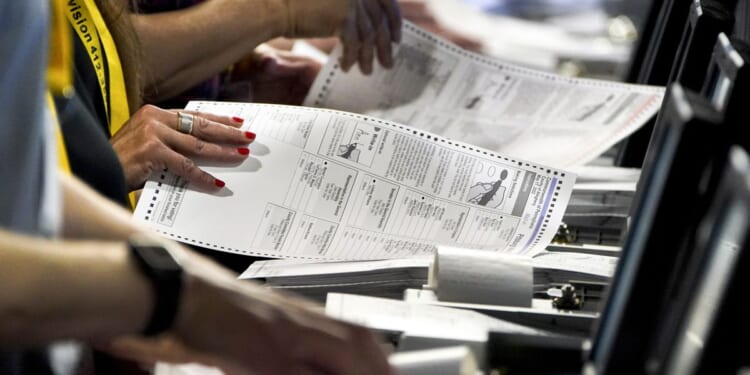
LITTLE ROCK, Ark. — A federal appeals court on Tuesday declined to reconsider its decision that would prevent private groups from suing under a key section of the Voting Rights Act, prompting a potential fight before the U.S. Supreme Court over a ruling that civil rights groups say erodes the law aimed at prohibiting racial discrimination in voting.
The 8th U.S. Circuit Court of appeals denied the request for the case to go before the full 8th U.S. Circuit Court of Appeals after a panel ruled 2-1 last year that only the U.S. attorney general can enforce Section 2 of the Voting Rights Act.
The Arkansas Public Policy Panel and the Arkansas State Conference NAACP, which are challenging Arkansas’ new state House districts under the law, have argued last year’s ruling would upend decades of precedent and would remove a key tool for voters to stand up for their rights.
But the 8th Circuit on Tuesday upheld the decision on procedural grounds, saying the groups tried to raise issues that weren’t made in their initial appeal.
“The panel did the best it could with the case it had, one complicated by twists, turns, and shifting arguments, not to mention today’s invitation to shadow box with arguments no one made,” Judge David Stras, who was appointed to the court by former President Donald Trump, wrote in a concurring opinion.
The 8th Circuit ruling applies only to federal courts covered by the district, which includes Arkansas, Iowa, Minnesota, Missouri, Nebraska, North Dakota and South Dakota. All but one of the court’s active judges were appointed by Republicans.
The American Civil Liberties Union, which represented the groups in the case, said it was “exploring all available options” but did not say whether it planned to take the case to the Supreme Court.
“The decision by the Eighth Circuit to not revisit the case is a serious blow to the rights of Arkansas voters,” Holly Dickson, executive director of the ACLU of Arkansas, said in a statement. “By allowing this ruling to stand, the court set a dangerous precedent that could have far-reaching implications for our democracy.”
Section 2 of the 1965 Voting Rights Act requires political maps to include districts where minority populations’ preferred candidates can win elections. Lawsuits have long been brought under the section to try to ensure that Black voters have adequate political representation in places with a long history of racism, including many Southern states.
Last year, the U.S. Supreme Court ordered Alabama’s congressional map redrawn to boost representation for Black voters in a case brought by private individuals and groups.
The Arkansas lawsuit challenges the state House redistricting plan, which was approved in 2021 by the all-Republican state Board of Apportionment.
Arkansas’ Republican attorney general, Tim Griffin, praised the court‘s decision.
“Arkansas’s redistricting process is done by Arkansans elected by their fellow Arkansans,” Griffin said. “This decision is a win for our citizens and sends a message that the rule of law governs in Arkansas.”
In a dissenting opinion, Judge Lavenski Smith wrote that “the mistakes in this case are almost entirely judge-driven.” Smith, who was appointed by to the court by former President George W. Bush, was joined by a judge appointed by Bush and another appointed by former President Barack Obama.
“The panel’s error is evident, but the court regrettably misses an opportunity to reaffirm its role as a dispassionate arbiter of issues that are properly presented by the parties,” Smith wrote.












